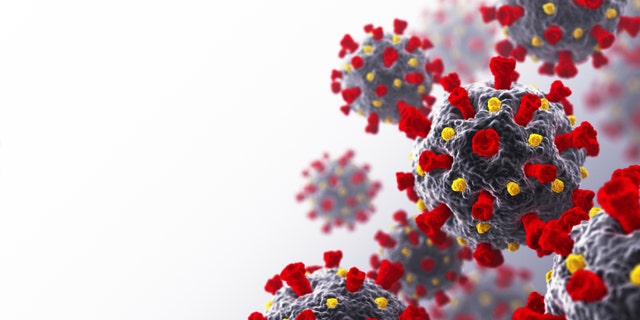T-lymphocytes (T-cells) in some people‘s bodies may have the ability to recognize COVID-19, despite it being a new virus, according to researchers in Singapore.
Their findings suggest exposure to types of coronaviruses in the past can produce “memory T-cells” in certain people’s blood, possibly helping them to fight off the novel coronavirus. The researchers of the small study published in Nature are also hopeful that these T-cells may help in the development of a vaccine for COVID-19.
WHY CORONAVIRUS OCCURS LESS IN CHILDREN THAN ADULTS, ACCORDING TO NEW STUDY
“It is important to send the message that T-cells and not only antibodies are an essential part of antiviral immunity,” Dr. Antonio Bertoletti, a professor of emerging infectious diseases at the Duke-NUS Medical School, and study co-author, told Fox News in a statement.
“Other coronaviruses have always been circulating in humans. It is possible that an immunity towards closely-related viruses can decrease the susceptibility or alter disease severity,” Bertoletti added.
T-cells are part of your immune system that responds to a foreign invader, such as a virus, according to the Centers for Disease Control and Prevention (CDC). They are different from antibodies.
After the body fights an infection, “the immune system remembers what it learned about how to protect the body against that disease,” the CDC states on its website. The body will retain a few specific T-cells – referred to as “memory cells” – that will act as an alarm and help the immune system identify and produce antibodies to attack the foreign germ if it enters the body again, according to the federal health agency.
In the Singapore study, the scientists found the presence of SARS-CoV-2-specific T-cells in all the patients they tested who recovered from COVID-19.

The novel coronavirus.
(iStock)
“[One hundred] percent of COVID-19 patients develop virus-specific T-cell immunity,” Bertoletti said in a statement.
The researchers also found that patients who were infected with SARS during the outbreak back in 2003 still possess virus-specific memory T-cells to that virus — 17 years later. They also found that these patients displayed cross-immunity to SARS-CoV-2, the virus behind this coronavirus pandemic.
“[One hundred] percent of subjects infected in 2003 by SARS-Cov-1 have pre-existing cross-reactive T-cells against SARS-CoV2,” Bertoletti told Fox News in a statement.
Bertoletti also stated their group found “more than 50% of uninfected healthy individuals demonstrate the presence of SARS-CoV-2-specific T-cells.”
The researchers said this could be due to cross-reactive immunity which is caused by exposure to other types of coronaviruses such as those that cause the common cold, or other currently unknown animal coronaviruses.
“It is important to understand if this could explain why some individuals are able to better control the infection,” said Bertoletti.
The authors stated in a news release that the findings of the long-lasting T-cells and the findings of cross-immunity suggest the role of T-cells — not just antibodies — are an essential part of immunity against COVID-19.
PRELIMINARY STUDY INVESTIGATES HOW CORONAVIRUS PARTICLES MAY TRAVEL IN CLASSROOMS, INDOOR AREAS
What remains unclear, however, is if pre-existing T-cells are sufficient for protection or to alter the pathogenesis of COVID-19, the authors discussed in a release.
The team of researchers announced in the release that it will be conducting a larger study of exposed, uninfected subjects to examine whether T-cells can protect against COVID-19 infection or alter the course of infection. They also said they will be exploring the potential therapeutic use of SARS-CoV-2-specific T-cells.